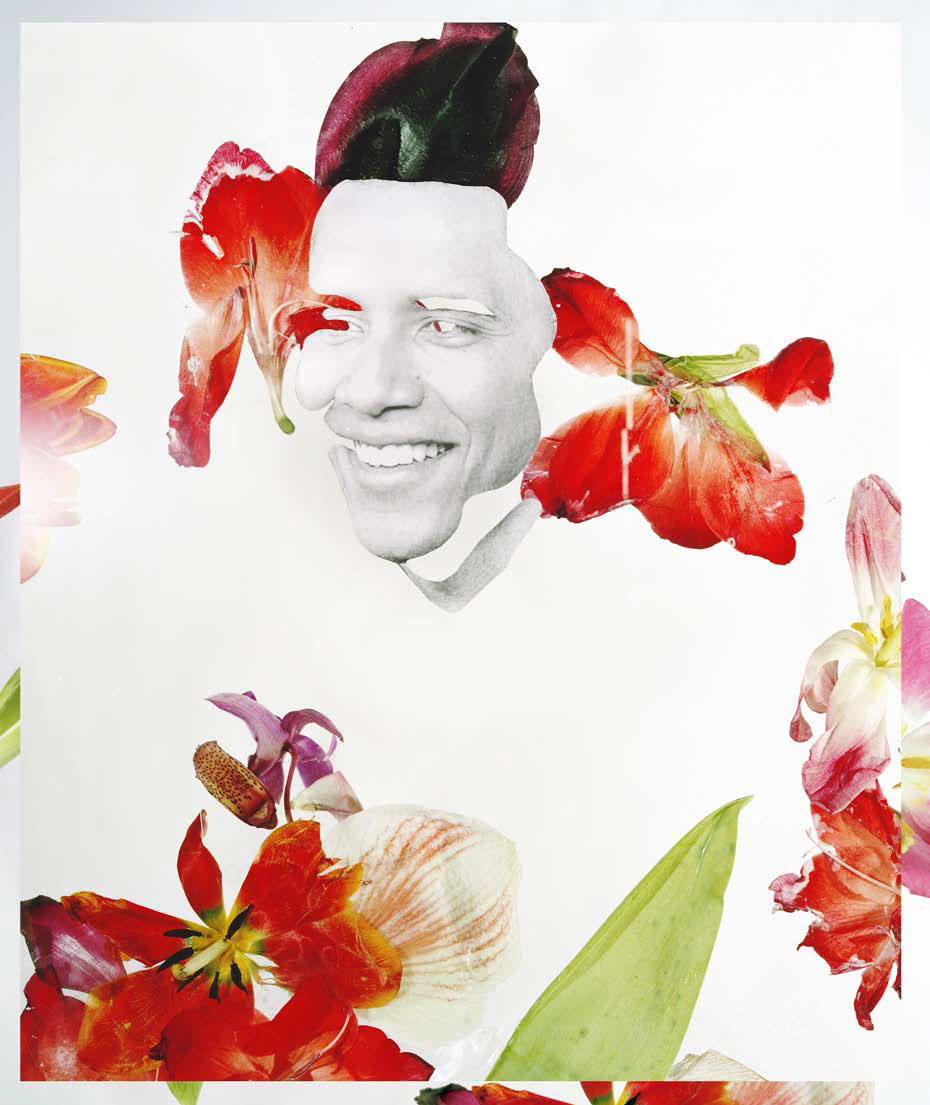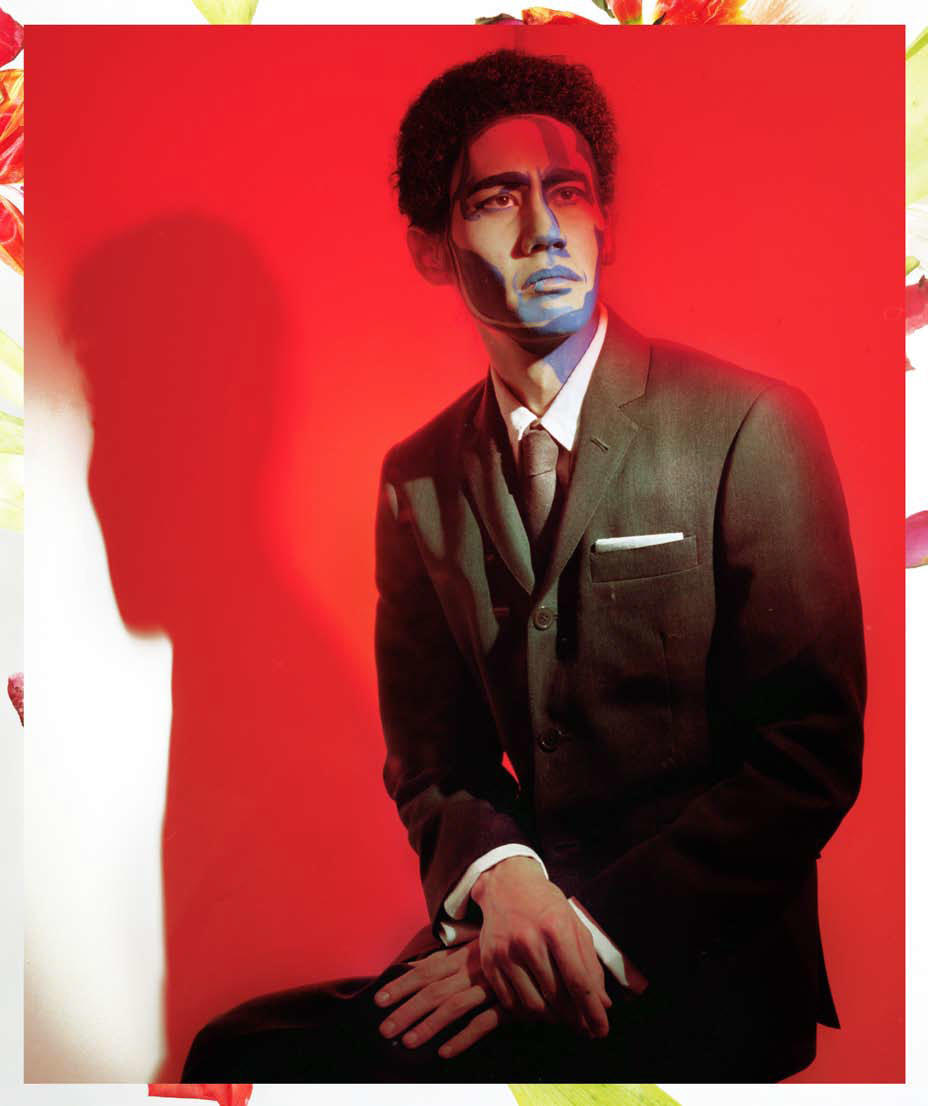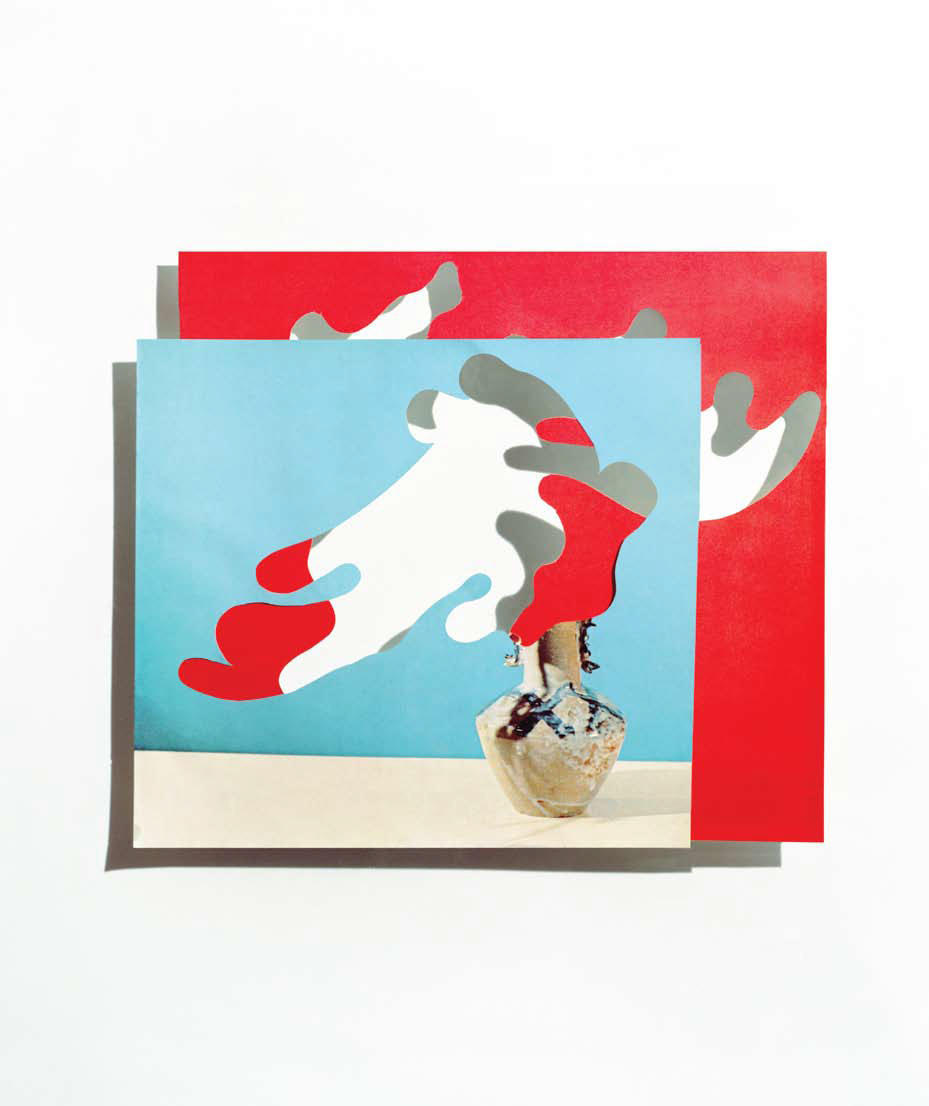It’s raining green, by the pond blue flowers!
It’s totally raining green, pouring blue flowers!
I smell the bees and the birds blue flowers!
Different aspects of life.
—Dr. Octagon

For every “first” attributed to Barack Obama, there is an attendant fear that he is being miscategorized, misrecognized. Barack Hussein Obama? In the wake of victory the notion that he is not what he seems not only persists but proliferates. The first black American president, after all, is also the first biracial president. (officially, at least. African-American lore counts five black or blackish presidents. Jefferson, Jackson, Lincoln, Harding, and Coolidge, with Clinton sometimes thrown in for effect.) The seventh president with a foreign-born parent is also the first from Hawaii, although to this day there are those who insist that Obama was actually born in Indonesia, Kenya, or perhaps Seattle, and that his father was not Barack Sr. Of Kisumu, Kenya, but Malcolm X himself. Along the outer reaches of the American political discourse, Obama the born-again Christian is cast as a Muslim, a partisan of Afrocentric liberation theology, and a marauding anti-life atheist-in-chief.
One of the most powerful fantasies of the 2008 presidential campaign was the notion that the bruising yet exhilarating contest could put an end to the very racial confusions that gave it such unique, well, colorings. It was a fantasy shared, it seemed, by the new First Family itself. As Michelle Obama told journalist Ta-Nehisi Coates, “People have never met a Michelle Obama. But what they’ll come to learn is that there are thousands and thousands of Michelle and Barack Obamas across America.” Leaving aside the obvious fact that whatever ordinariness the Obamas might once have had has now been sacrificed on the altar of the White House, the First Lady’s hope that she and her husband might serve the great righteous work of racial demystification is belied by the fact that the president takes such pleasure (and has found such power) in the myths, lies, and anxieties of race.
Consider the wry half-inward, half-defiant smile that ghosts the president’s lips whenever he refers to himself as a “mutt.” Or recall the passage, early in his 1995 autobiography Dreams From My Father, where Obama notes the amusement his maternal grandfather took in toying with young Barry’s racial ambiguities. “Sometimes when Gramps saw tourists watching me play in the sand, he would come up beside them and whisper, with appropriate reverence, that I was great-grandson of King Kamehameha, Hawaii’s first monarch. ‘I’m sure your picture’s in a thousand scrapbooks, Bar,’ he liked to tell me with a grin, ‘from Idaho to Maine.’”
Stanley Dunham died in 1992, five years before the boy he and his wife Madelyn helped raise won his first seat in the Illinois state senate. But his words were prophetic. It has been estimated that since November 4, 2008, close to 300 million scrapbook-ready magazines and newspapers have been sold with Barack Obama on the cover, enough pages to stretch from Idaho to Maine many times over. Even Dunham’s reference to Kamehameha seems slightly uncanny. Hawaii’s great unifier brought the disparate islands under one-man rule in large part by outspending his enemies, the other rulers playing overmatched Clintons and McCains to his Obama. Kamehameha’s last opponent, Kaumualii, gave up without a fight after watching him amass the biggest armada the islands had ever seen, with newfangled foreign-built schooners and cannons. The triumphant warrior-king showed a great interest in the problems of war and the treatment of noncombatants, promulgating the doctrine of Mamalahoe, or the “Law of the Splintered Oar,” which asserted the right of “every elderly person, woman and child” to “lie by the roadside in safety” during battle. Looking forward, Kamehameha’s grandson, Kamehameha III would assert that “God hath made of one blood all nations of men to dwell on the earth in unity and blessedness” preceding Obama’s career-making assertion at the 2004 Democratic National convention that “there’s not a black America and white America and Latino America and Asian America; there’s the United States of America” by 165 years.
Indeed, if there is a racial fantasy worthy of consideration, it is not the oft-bruited suggestion that Obama is a Muslim or a Marxist or an Indonesian, but Stanley Dunham’s sly assertion that his grandson was the scion of Hawaiian royalty. For Obama, oddly enough, bears more than a passing resemblance to Queen Liliuokalani, the last reigning Hawaiian monarch, deposed in 1898; she looks like she could be his mother. His regal posture and multilayered, sun-kissed skin tone, with its ghostly archipelago of freckles, suggest a genetic transit that skips the American heartland altogether, jumping from Kenya to the middle of the Pacific in one hop. His grandfather, who had been primed for such insights after being instructively misidentified as “some kind of wop” by his wife’s family, could not only see this connection but made it possible by picking his family up and planting it on Hawaii’s fertile volcanic soil in the 1950s. Obama’s autobiography describes at great length how his grandparents were unsuited for life in the moist, conflicted American South, and drifted steadily west, like pollen caught on the wind.
In the dog days of August 2008, as the presidential contest gathered momentum, ABC News talking head Cokie Roberts lambasted Obama’s decision to take a week off to go back to the land of his birth. “[G]oing off this week to a vacation in Hawaii does not make any sense whatsoever,” she blustered for the camera. “I know his grandmother lives in Hawaii, and I know Hawaii is a state, but it has the look of him going off to some sort of foreign, exotic place. He should be in Myrtle Beach…”
Roberts was castigated at length for her assertion, which was taken to reveal the bland yet tendentious herd mentality of Washington’s commentator class. (After the death of Obama’s grandmother the day before the election, Roberts’ riff seemed especially churlish.) But she may have had a point. Hawaii is a state, yes, but is there another state constitution with a clause as exotic as §5-7.5 of the Hawaii Revised Statutes?

“Aloha Spirit”
(a) “Aloha Spirit” is the
coordination of mind and heart within each person. It brings each person to the self. Each person must think and emote good feelings to others. In the contemplation and presence of the life force, “Aloha,” the following unuhi laula loa may be used:
“Akahai,” meaning kindness to be expressed with tenderness;
“Lokahi,” meaning unity, to be expressed with harmony;
“Oluolu,” meaning agreeable, to be expressed with pleasantness;
“Haahaa,” meaning humility, to be expressed with modesty;
“Ahonui,” meaning patience, to be expressed with perseverance.
These are traits of character that express the charm, warmth and sincerity of Hawaii’s people. It was the working philosophy of native Hawaiians and was presented as a gift to the people of Hawaii. “Aloha” is more than a word of greeting or farewell or a salutation. “Aloha” means mutual regard and affection and extends warmth in caring with no obligation in return. “Aloha” is the essence of relationships in which each person is important to every other person for collective existence. “Aloha” means to hear what is not said, to see what cannot be seen and to know the unknowable.
(b) In exercising their power on behalf of the people and in fulfillment of their responsibilities, obligations and service to the people, the legislature, governor, lieutenant governor, executive officers of each department, the chief justice, associate justices, and judges of the appellate, circuit, and district courts may contemplate and reside with the life force and give consideration to the “Aloha Spirit.”
Just about every state constitution evokes one or another higher power — “We, the people of Colorado, with profound reverence for the Supreme Ruler of the Universe…” — but few have the mythopoetic pretensions of the “Aloha Spirit” clause. Of course, the preamble to Hawaii’s state constitution makes vague reference to Judeo- Christian providence — “the people of Hawaii, Grateful for Divine Guidance,” etcetera — but the moral universe of “Aloha” speaks directly to the islands’ unique history and status as the most diverse state in the American union. While Lou Dobbs and his legions worry over the pending reconquest of the American Southwest by some dead-but-dreaming Aztec empire, Hawaii is already eight shades of brown, with three-quarters of Hawaii’s islanders claiming heritage in East Asia or the Pacific rather than Anglo- or Euro-America. (A third of them are Native Hawaiians, people who can claim descent from the indigenous, post-Polynesian inhabitants of the defunct Hawaiian kingdom.)
The “Aloha Spirit” law’s incantatory evocation of “life force” is also a kind of indigenous demography, although the natives in this case are drawn from the plant and animal kingdoms. Hawaii is the most biodiverse state in the union, with close to 20,000 terrestrial and marine species, half of which exist nowhere else on earth. Were its small landmass to sink beneath the waves, close to a third of the United States’ terrestrial biota would drown. This profusion allows us to make further distinctions between the opening evocation of a rotely capitalized “Divine Guidance” and the subsequently elaborated “Aloha Spirit,” for if Hawaii is a state constitutionally bound to honor a unifying world spirit, this essence may be largely understood as a kind of oceanic and vegetal consciousness, slow moving and implacable. Insomuch as Aloha suggests human attunement to a humming natural chorus, the four-legged and wingless have relatively recent and small parts to sing, the bulk of the score belonging to trees, ferns, and flowers; to fish, turtles, and sea mammals; and to swarms of insects carried along great distances by Makani, the spirit of the trade wind; by Kane, spirit of the clouds; and by Laniloa, spirit of the waves and currents. Against such a spiritual backdrop, it’s no wonder that in the fantasies of tourists and natives both, Hawaiians are an even-handed, mellow bunch. Even Pele, the impulsive avatar of the volcano, spends most of her time burrowing into the moist, dark ground in search of a place of geologic peace and quiet, an end to restlessness and wanderlust.

Barack Obama set out to be president of the United States — still the most powerful man on earth — which does not, as such, seem especially Aloha in spirit. And yet there is something about him that does suggest that he, like the public servants of his home state, “may contemplate and reside with the life force.” Commentators praised his preternatural calm during the race, his unflappability, as contrasted with John McCain’s stilted yet manic energy. Last July, when his campaign plane nearly lost control in midair, the few journalists who covered the story were unsure what to be more astounded by — Obama’s serenity during the emergency or the presence of mind he showed afterward in refusing to discuss what one newspaper breathlessly described as “the most serious incident in presidential aviation ever!” When a young woman abruptly broke off from a photo-op hug to shriek that a centipede was crawling up his arm, video cameras recorded that Obama neither started nor shook. “Is there?” he asked, before picking the insect up between two fingers and dropping it gently to the ground.
Obama is sympathetic to Hawaiian nationalism — he supports the Native Hawaiian Government Reorganization Act, also known as the Akaka Bill, which would apply Native American–style tribal rights and prerogatives over all of Hawaii, with consequences for the state’s sovereignty (and lingering litigation by the descendants of Queen Liliuokalani against the United States government) to be determined. But in his writings he has been loath to attribute to Hawaii or its people much in the way of credit for his demeanor. As he tells it, his grandparents lent him their Midwestern pragmatism and optimism, his mother taught him political idealism, and his Indonesian stepfather taught him to box and warned against wasting coins on beggars, while from his father came his dreams (and the title of his best-selling autobiography). If what can be shorthanded as Obama’s “cool” has a self- acknowledged root, it is in the diligent study of black male affect he undertook on the basketball court and during his time among the African-American students at Hawaii’s universities and on the mainland in the black enclaves of Los Angeles, Upper Manhattan, and Chicago.
There is something 1950s about Obama’s trim suits and closely cropped hair, something of Malcolm and Martin, of Harry Belafonte (over whom his mother never tired of swooning), of Patrice Lumumba in horn-rimmed glasses sitting at table in Leopoldville about to reclaim the Belgian Congo. The cultural change many see in Obama brings us back to a future interrupted by the gyrations of the 1960s and 70s, as if Miles Davis had never discovered free jazz and electrified instruments, as if cool had never turned hot. We can spy this same turn down a road not taken in Obama’s recent political trajectory. Chief among the candidate’s pivots was a disavowal of Rev. Jeremiah Wright, whose Afrocentric Trinity United Church of Christ was not only where Obama was born again, but where he picked up the signal theme of his political life — the audacity of hope was a recurring theme of Wright’s expansive, kente-cloth-clad sermonizing. Obama had journeyed to Chicago as part of an ongoing search for a more authentic black identity than he could find in his grandfather’s Hawaii, but one can’t help imagining that the attentive, insightful
Obama heard echoes of Aloha during his decade at Trinity United, particularly during the church’s elaborate annual celebrations of Kwanzaa, the black nationalist holiday. The pillars of Kwanzaa — Umoja (Unity), Kujichagulia (Self-Determination), Ujima (Collective Work and Responsibility), Ujamaa (Cooperative Economics), Nia (Purpose), Kuumba (Creativity), and Imani (Faith) — evoke aspects of Aloha that reflect the shared context of 1960s cultural nationalism from whence they both derive. But African-Americans and Hawaiians have more in common than just Obama. There are 240,000 native Hawaiians, defined generously as those with 50 percent or more Hawaiian blood, and much like their more numerous black countrymen on the mainland, they persistently find themselves among their region’s poorest and most disconnected. They die younger than their neighbors; drop out of school more frequently; suffer the highest unemployment rates; and are more likely both to be the victims of crime and to go to jail more frequently, and for longer stretches, when convicted by juries of their presumptive peers. They are, as white American servicemen on the island’s military bases began calling them at the turn of the last century, the niggers of the Pacific. He might not choose to avow it, but Barack Obama is their first president as well.